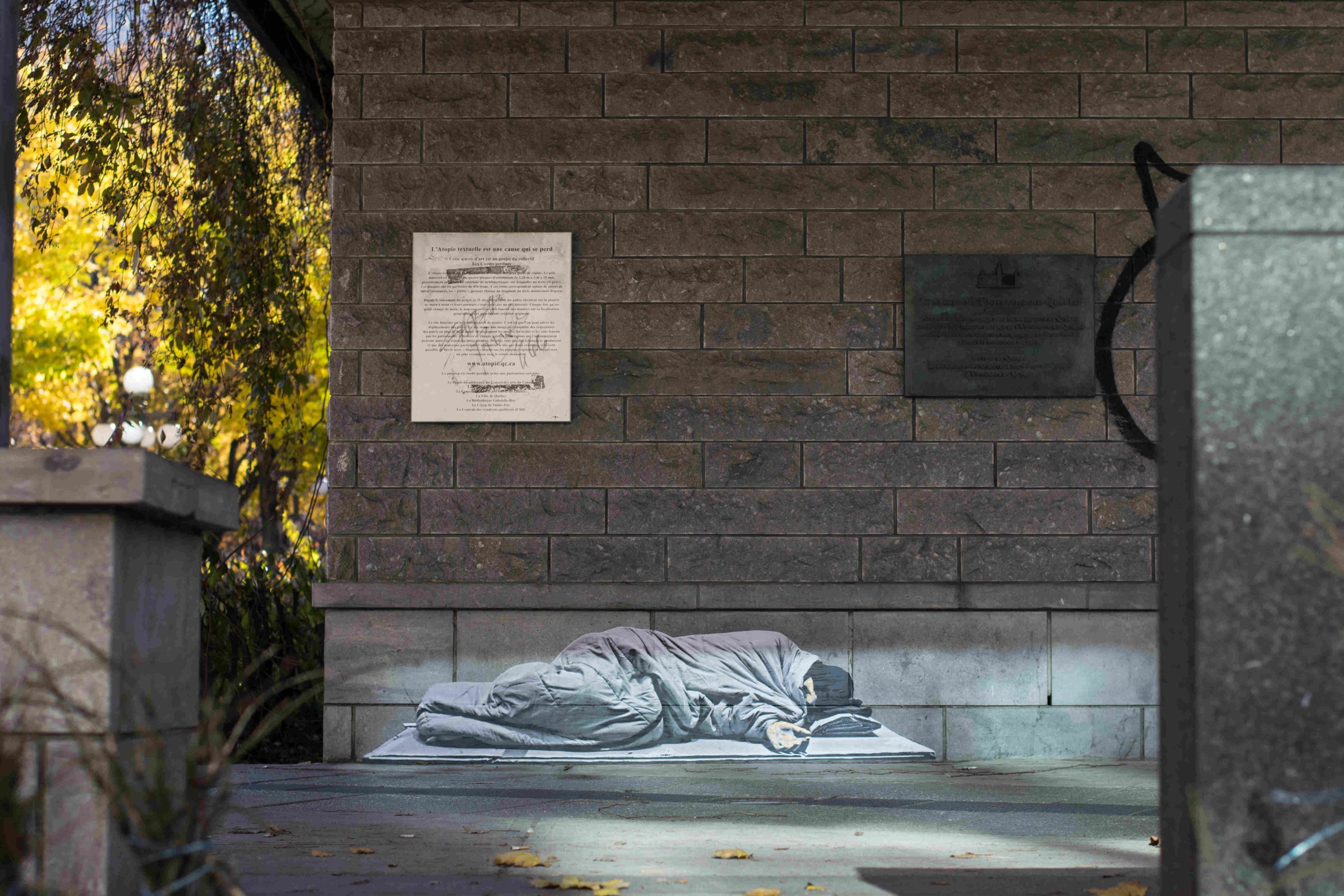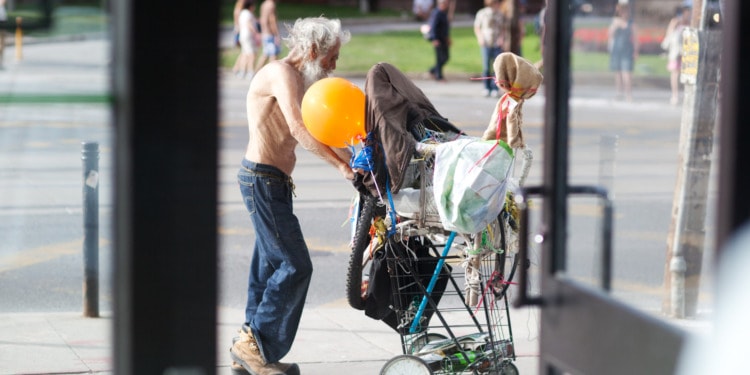Homelessness is a sad reality in many countries. Not only that, but the risk of homelessness is growing. An analysis by the Heriot-Watt University for Crisis discovered that the number of homeless people in Britain is expected to double by 2041.
But having a roof over your head, food, and healthcare are basic human rights. Although we might be tempted to see homeless people as distant and different from us, the reality is that each of us could end up in a similar situation.
There are many causes of homelessness: Mental health issues and drug abuse are perhaps the first things that come to our minds. However, common things — such as a broken marriage, or the loss of a job — might also ignite a downward spiral that results in losing everything and ending up in the streets.
Growing up, we have all heard the stereotype that homeless people cannot be trusted with their money because they are likely to spend it on drugs and alcohol. But the reality of homelessness is different.
A recent study, published by researchers at the University of British Columbia (UBC), proved that homelessness does not compromise people’s responsibility with money.
The study was built on a previous survey conducted on 1,114 people which had highlighted a general mistrust of homeless people’s spending habits: In fact, the majority of the participants believe that, if displaced people were given C$7,500, they would spend it on “temptation goods,” such as drugs, alcohol, and tobacco.
The researchers at the University of British Columbia decided to give 50 homeless people — without severe drugs and mental health problems — a one-time payment of C$7,500 and track their spending over the course of one year.
The choice to include only people without harsh mental health or drug abuse issues comes from the belief that the majority of the homeless population does not have such problems.
“Rather, they are largely invisible. They sleep in cars or on friends’ couches, and do not abuse substances or alcohol,” said Jiaying Zhao, the associate professor who led the study at UBC.
Related articles: Cash Transfers, a New Way to Provide Aid | Ending Homelessness For Good – A Realistic Goal? | Mentally Ill and Homeless
The results proved that the stereotypical connection between homelessness and bad spending habits is false. In line with previous studies, when given C$7,500, “overall spending increased but without increased temptation goods spending after the cash transfer.”
However, it did not ease cognitive function and subjective well being, probably because of Canada’s high living costs. In fact, C$7,500 represents only 12% of the annual personal income.
Another factor to keep in mind is that the study took place when modular housing was being developed in Vancouver, which might have helped the participants find a stable home.
According to the authors of the study, these results are important for three reasons. Not only does it suggest that giving money to homeless people can be a cost-effective solution — because it gives them “choice and freedom to make their own decisions to meet their own needs” — but it also highlights how the current social supports do not benefit homelessness significantly and could be paired with cash-transfer.
Finally, it “adds to growing global evidence demonstrating the benefits of cash transfers to low-income populations,” in line with previous studies.
Regarding the last point, aid projects providing cash to their beneficiaries have been carried out in many countries in the Global South over the past decade and they have achieved concrete results, proving the success of the cash transfer approach.
Such findings are extremely important for the future of homeless people everywhere, not just in the Global South but in developed countries. If governments know that people can be trusted with their money, then they might be more prone to financing homelessness assistance programs

And addressing the problem of homelessness has never been more imperative.
The State of Homelessness: A Financial and Mental Burden
The amount of homeless people around the world is disheartening: 2% of the global population — 150 million people — experience homelessness. Homelessness causes mental distress, trauma, and substance abuse disorders; homeless people also live between 8 and 13 years less than people with permanent housing.
Apart from human costs — which are significantly important — homelessness also weighs on a country’s financial resources. In fact, the 2023 study found that the annual cost of health and social services for homeless people is $5,148 USD. This includes projects such as common housing or shelters, healthcare, or emergency services.
However, traditional homelessness assistance programs have focused on the consequences of not having a stable home. Even though this is of key importance, to solve the homelessness problem we must address the main issue: Money.
This is the reason why the researchers at UBC decided to give out such a large sum. Financial problems impact both cognitive function and mental health. By giving out money, they eased homeless people’s concerns and mental distress, while also giving them the resources to buy basic commodities.
Fighting homelessness is therefore imperative for both the people concerned and society’s well being. However, to do so, the detrimental stereotypes of homeless people need to be addressed. Homeless people’s spending habits are no different than the rest of the population.
Jiaying Zhao stated, “[t]he impact of these biases is detrimental. […] When people received the cash transfer, they actually spent it on things that you or I would spend it on – housing, clothing, food, transit – and not on drugs and alcohol.”
In this aspect, the Canadian study is of crucial importance: Not only does it show that homeless people are able to spend their money consciously, but it also shows that governments actually save money.
Homelessness is a problem that we must address with more emphasis. Governments have a moral obligation to help those in need. After all, losing everything — housing, clothing, stability — cannot and should not mean losing our human rights.
Editor’s Note: The opinions expressed here by the authors are their own, not those of Impakter.com — In the Featured Photo: Canada Day 2011, a homeless man walks with his shirt off, on Queen Street West, across from Old City Hall, Toronto. Featured Photo Credit: Svetlana Grechkina














